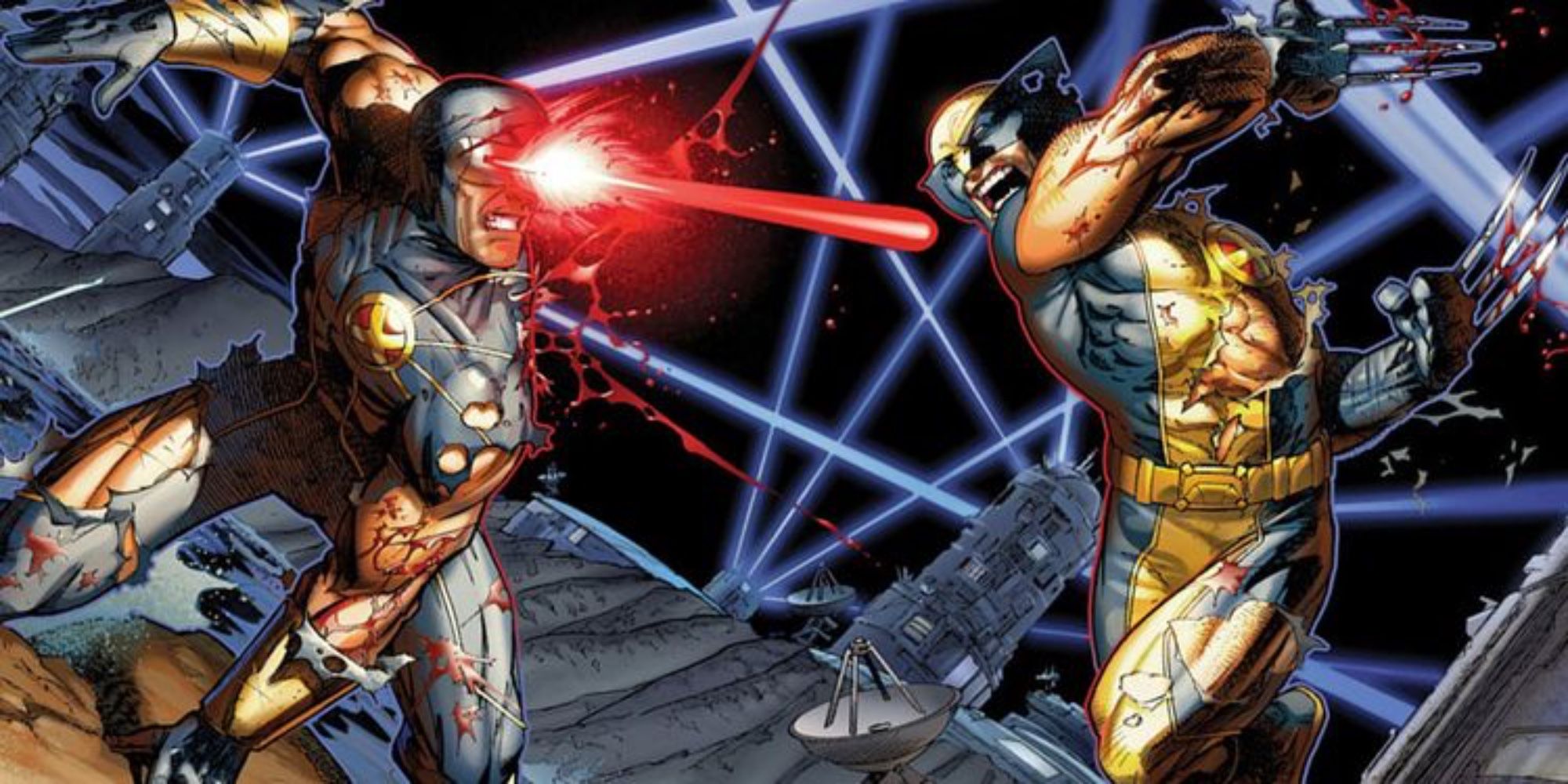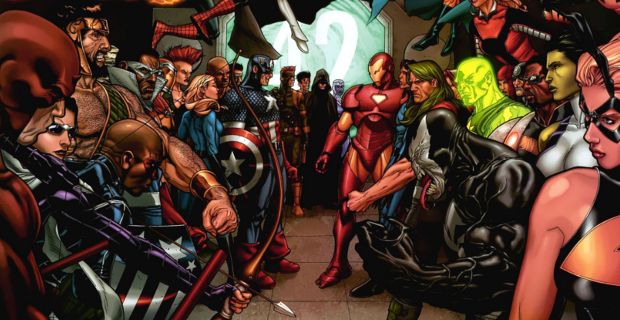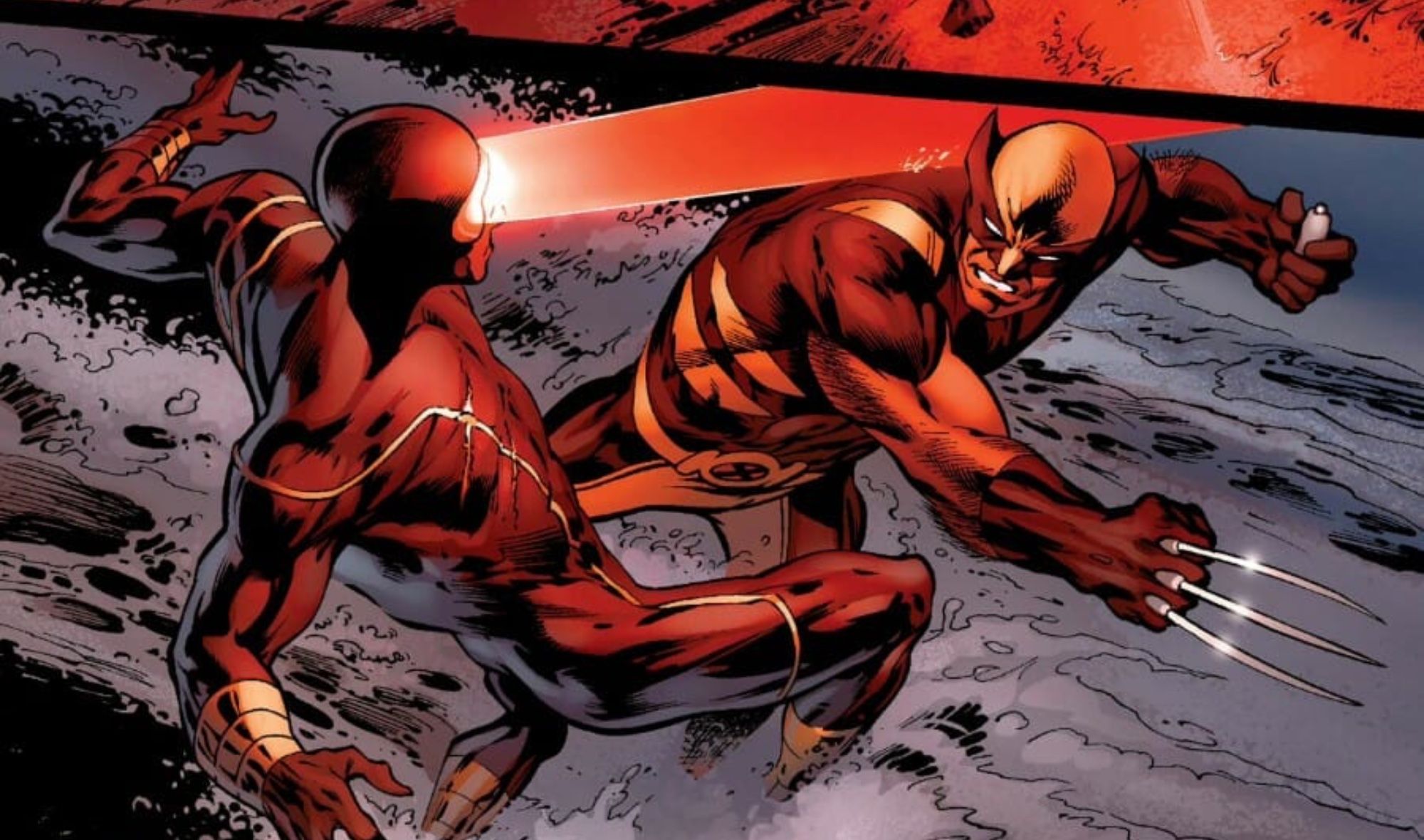In the Marvel Comics universe, superheroes seem to fight each other about as much as they fight their villains, with conflicts like the titular event of Mark Millar and Steve McNiven’s Civil War frequently splitting the Avengers and the larger superhero community right down the middle. While it wasn’t the first instance of hero-on-hero violence, it’s certainly one of Marvel’s biggest – but that doesn’t automatically make it Marvel’s best. That's especially true when comparing it to Cyclops and Wolverine’s own civil war that takes place in X-Men: Schism by Jason Aaron, Carlos Pacheco, and more.
The Avengers’ Civil War centers around the implementation of the Superhuman Registration Act, which mandates that all superhumans must become registered government agents after a superhuman conflict wipes out an entire town. Fighting for civil liberties, Captain America leads the Anti-Registration forces while Iron Man becomes the figurehead for the Pro-Registration forces under the argument that it’ll prevent further tragedies in the future. This divide leads to wide-scale conflict across the Marvel Universe, with heroes imprisoning heroes and more than a few deaths. In the end, Steve only surrenders after realizing the damage their conflict has caused, turning the public against the Anti-Reg forces.
Meanwhile, Schism comes down to an ideological divide between the X-Men Cyclops and Wolverine following the events of the Decimation and the mutants’ relocation to Utopia off the coast of San Francisco. When a Sentinel threatens to destroy the entire island, an increasingly militant Cyclops is more than willing to allow the young students to fight for their lives while Wolverine argues that their young charges are children and shouldn’t be treated as soldiers. The two eventually come to blows in a one-on-one fist fight before the Sentinel can be stopped, but agree to part ways with Wolverine and those that side with him leave to form the Jean Grey School in Westchester.
Marvel’s Civil War is one of its most prominent event series, but it ultimately comes down to a thinly masked slugfest between Cap and Iron Man over their hurt egos that tears the Marvel Universe apart in the process. Regardless of their stances, both Captain America and Iron Man are guilty of escalating the situation to the point of no return and permanently damaging not just their relationship but those of dozens of heroes for years to come. Their selfish personality conflict causes untold damage both physically and emotionally to many of their closest friends all because they can’t behave like adults.
Ultimately, the X-Men’s very own Schism comes down to a similar clash of personalities with Cyclops and Wolverine standing in for Tony and Steve. While their one-on-one fight is much more brutal due to the nature of the combatants, they still keep the fight just between the two of them, and they even manage to put their feelings aside – at least temporarily – to save their home alongside the students they are arguing to protect. And once the immediate threat is ended and the violence finished, they are able to split almost amicably by making their cases to their fellow X-Men without destroying their entire community.
With Schism’s much more personal stakes hinging on the literal and figurative future of the mutant species, the conflict overall feels much more organic while also having a monumental impact on the X-line of books and the Marvel Universe from that point on. Meanwhile, the conflict of Civil War, though grave, provides plenty of opportunities to be deescalated if only Captain America and Iron Man can speak with one another. Either way, when it comes to hero versus hero conflicts, the X-Men Cyclops and Wolverine’s personal Civil War makes much more sense than that of Marvel Comics’ Avengers.



